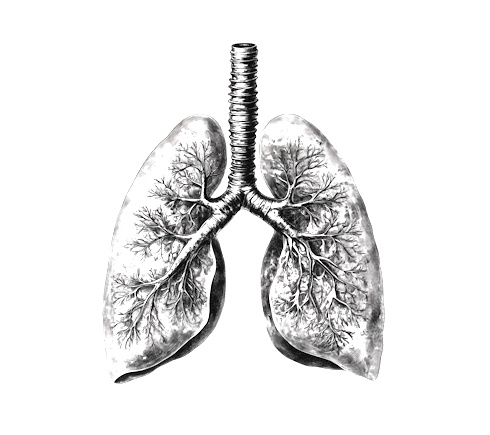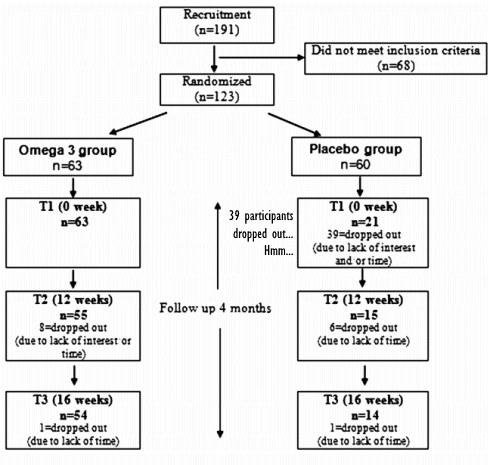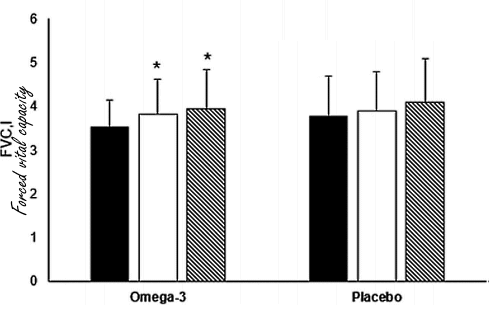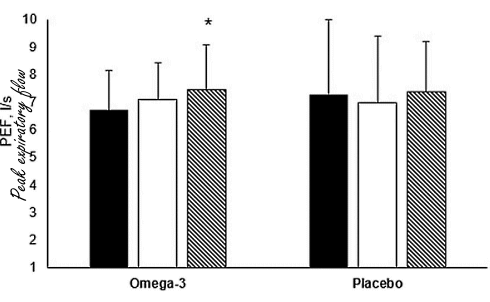Supplement with omega-3 fatty acids takes lungs functioning to a higher level
A modest dose of omega-3 fatty acids, too small to improve cardiovascular health, can significantly improve lung health. According to a human study from Lithuania, a daily dose of 330 milligrams of omega-3 fatty acids increases maximum oxygen uptake.

Study
[TABLE="width: 358, align: right"]
[TR]
[TD="align: right"][/TD]
[/TR]
[/TABLE]
Arturas Sujeta, a sports scientist associated with Lithuanian Sports University, divided 123 adult office workers aged 40-60 years into 2 groups. For 16 weeks, the subjects in the placebo group took a capsule daily without active substances, and the subjects in the experimental group received a capsule every day with 330 milligrams of omega-3 fatty acids from fish.More precisely, the supplement provided 91.5 milligrams of EPA, 63 milligrams of DHA, 10.6 milligrams of DPA and 200 IU of vitamin D3 daily.

Results
The supplement had little effect on the HDL level, LDL level and triglycerides. It was apparently too lightly dosed for that. There was some effect on the glucose level, but also so economical that it was clinically irrelevant.
Nevertheless, the supplement did have a significant effect on the functioning of the lungs. It increased maximal oxygen uptake [VO2max] by 8.6 percent. VO2max is still the leading predictor of cardiovascular fitness.

[FONT="]
[/FONT]

At the same time, the supplement increased the amount of air the subjects could inhale and exhale. In the experimental group, the forced vital capacity [FVC] increased by 11 percent. That is the maximum amount of air a person can exhale during a forced breath.
The supplement not only increased the absorption capacity of the lungs, but also the rate at which the lungs could take in air. One measure of this is the peak expiratory flow [PEF], which is the maximum rate at which a person can exhale air. Supplementation increased this speed by 12 percent.

Conclusions
Supplementation with omega-3 fatty acids could therefore be interesting for athletes who want to increase their endurance, we suspect after reading the Lithuanian study. Or for individuals who for another reason want to improve the condition of their lungs.
Source:
Int J Vitam Nutr Res. 2020 Jan;90(1-2):67-83.
A modest dose of omega-3 fatty acids, too small to improve cardiovascular health, can significantly improve lung health. According to a human study from Lithuania, a daily dose of 330 milligrams of omega-3 fatty acids increases maximum oxygen uptake.

Study
[TABLE="width: 358, align: right"]
[TR]
[TD="align: right"][/TD]
[/TR]
[/TABLE]
Arturas Sujeta, a sports scientist associated with Lithuanian Sports University, divided 123 adult office workers aged 40-60 years into 2 groups. For 16 weeks, the subjects in the placebo group took a capsule daily without active substances, and the subjects in the experimental group received a capsule every day with 330 milligrams of omega-3 fatty acids from fish.More precisely, the supplement provided 91.5 milligrams of EPA, 63 milligrams of DHA, 10.6 milligrams of DPA and 200 IU of vitamin D3 daily.

Results
The supplement had little effect on the HDL level, LDL level and triglycerides. It was apparently too lightly dosed for that. There was some effect on the glucose level, but also so economical that it was clinically irrelevant.
Nevertheless, the supplement did have a significant effect on the functioning of the lungs. It increased maximal oxygen uptake [VO2max] by 8.6 percent. VO2max is still the leading predictor of cardiovascular fitness.

[FONT="]
[/FONT]

At the same time, the supplement increased the amount of air the subjects could inhale and exhale. In the experimental group, the forced vital capacity [FVC] increased by 11 percent. That is the maximum amount of air a person can exhale during a forced breath.
The supplement not only increased the absorption capacity of the lungs, but also the rate at which the lungs could take in air. One measure of this is the peak expiratory flow [PEF], which is the maximum rate at which a person can exhale air. Supplementation increased this speed by 12 percent.

Conclusions
Supplementation with omega-3 fatty acids could therefore be interesting for athletes who want to increase their endurance, we suspect after reading the Lithuanian study. Or for individuals who for another reason want to improve the condition of their lungs.
Source:
Int J Vitam Nutr Res. 2020 Jan;90(1-2):67-83.

